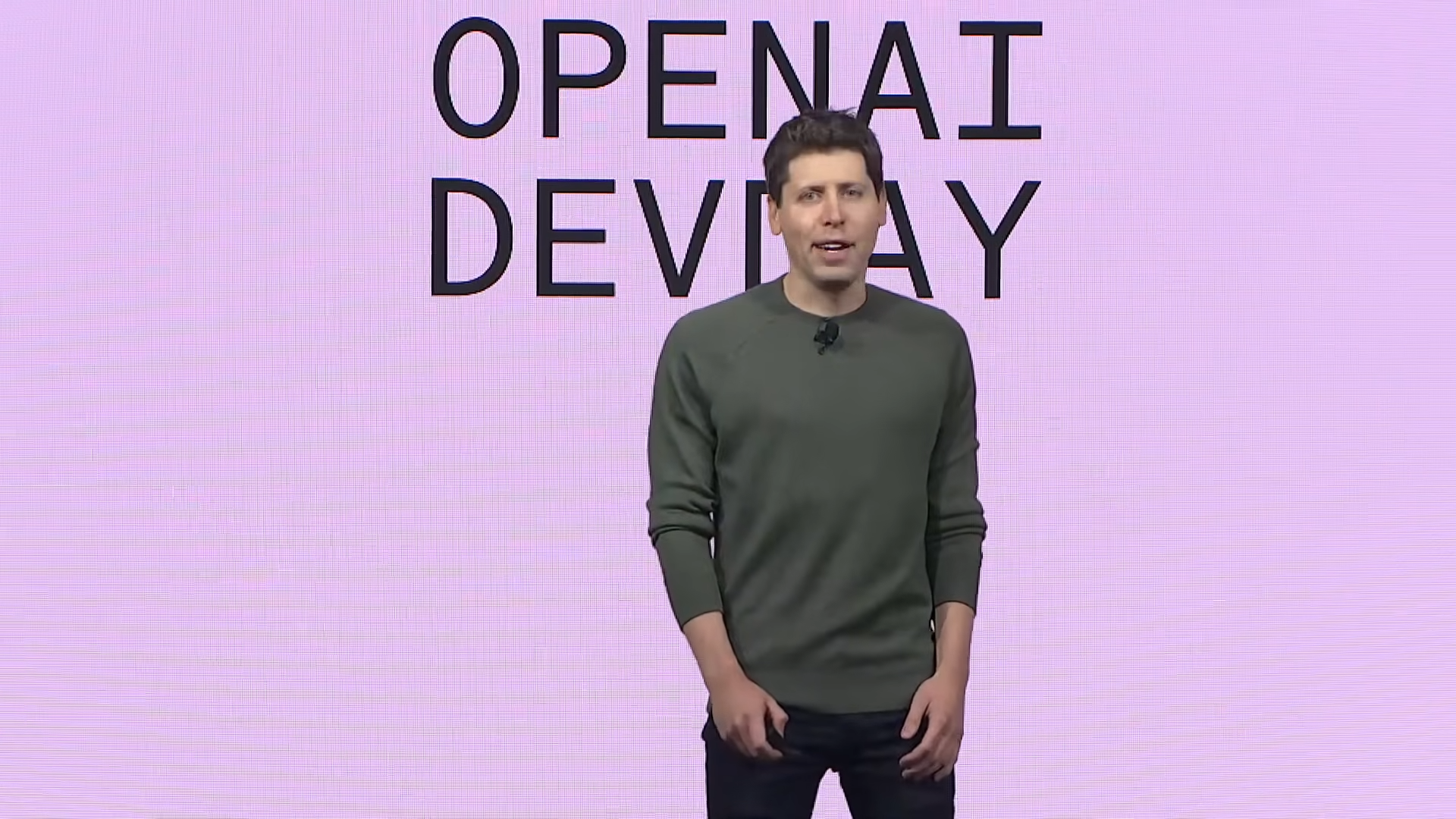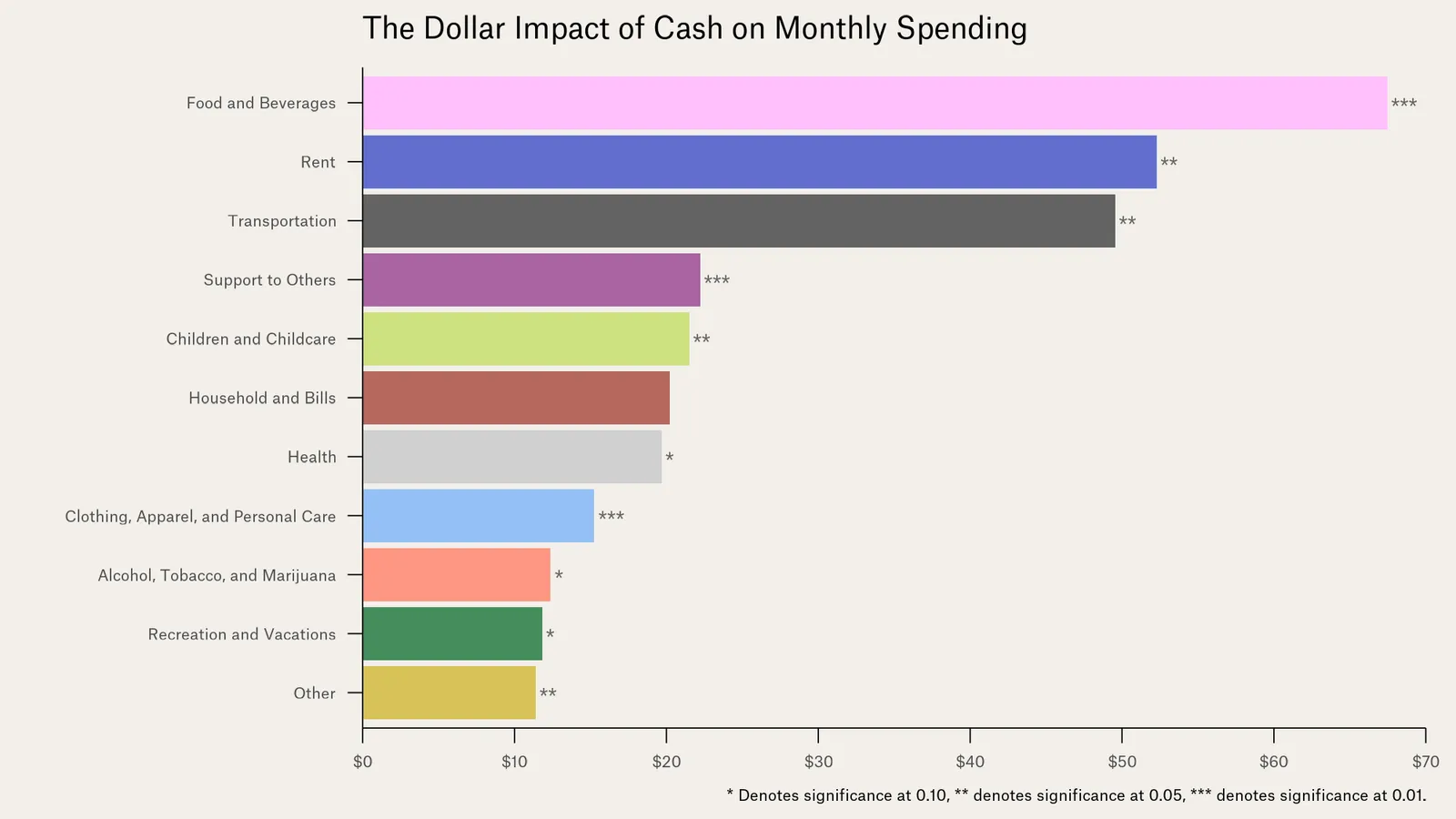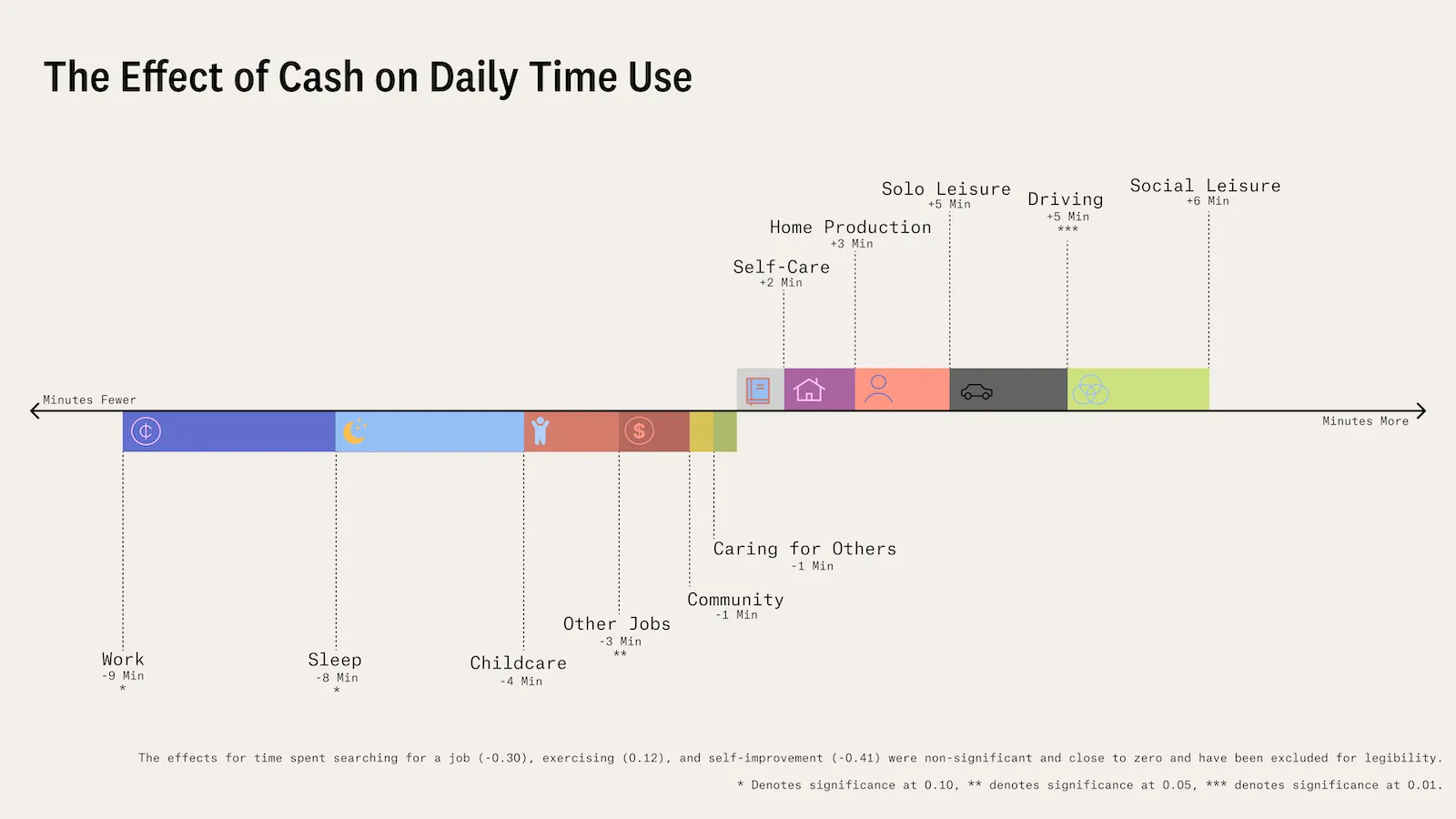OpenAI CEO's basic income recipients spend more on food, rent, and helping others

Key Points
- A three-year study by OpenResearch, a research lab funded by OpenAI founder Sam Altman, examined the effects of an unconditional basic income of $1,000 per month on 3,000 randomly selected people in Texas and Illinois.
- Recipients used the money primarily for basic needs such as food, rent, and transportation. The largest relative increase was in financial support for others. Recipients also moved more often and used more medical services.
- Employment rates and hours worked increased for both groups, but less so for recipients. They showed more entrepreneurial interest, especially black and female participants. The study illustrates how an unconditional income can increase agency in several areas of life.
A study funded by OpenAI founder Sam Altman has examined the effects of an unconditional basic income in the USA. The results show that the recipients used the money primarily for basic needs, medical care and to support others.
OpenResearch, a lab backed by Altman, conducted a three-year study giving 3,000 randomly chosen people in Texas and Illinois $1,000 monthly, while a control group received $50 per month. Altman contributed $14 million, with Twitter founder Jack Dorsey donating $15 million and GitLab co-founder Sid Sijbrandij adding $6.5 million. The research group distributed $45 million in total.
The study found recipients spent most of the extra money on basic needs and supporting others financially. The biggest spending increases were on food, rent, and transportation. Relative to other categories, financial support for others saw the highest increase at 26%.

OpenResearch's Karina Dotson said, "What surprised me the most was that [compared to the $50 control group] the biggest increase in spending was on financial support to others […] And that was especially so for the lower income recipients in our population, who we know from existing literature are more likely to have low income social networks as well."
More flexibility in housing and healthcare
Recipients were more likely to move and pay for their own housing, reducing dependence on family or friends. After three years, 56% of recipients had moved at least once, compared to 51% in the control group.
The payments led to increased use of medical services, including hospital stays, emergency room visits, dental care, and doctor's appointments. Healthcare spending rose by about $20 per month. There was also evidence of decreased alcohol and drug abuse.
Lower employment, but more entrepreneurial interest
Employment effects were mixed. While employment rates and hours worked increased for all participants, the increase was larger in the control group. Recipients worked slightly less, averaging 1.3 fewer hours per week. Their earned income was lower, but higher overall when including the cash payments.
Researchers interpret this as evidence that payments allowed recipients to reduce work hours and use the money as replacement or additional income. This gave them more flexibility to make decisions aligned with their circumstances, goals, and values. They used the extra time in various ways, such as for family, education, health, or leisure.

Despite working less, recipients remained active jobseekers but were more selective, prioritizing interesting or meaningful work. Their interest in entrepreneurship increased, particularly among black and female recipients.
Cash alone does not solve structural problems
The study shows how unconditional income can empower people in various life areas, enabling them to make decisions better suited to their individual situations.
However, it also reveals limitations: Initial improvements in mental health and food security decreased in later years, likely due to factors like the COVID-19 pandemic, rising food prices, and the end of aid programs.
Elizabeth Rhodes, Director of OpenResearch, emphasized, "There isn’t one ‘Here's this one solution’ to any challenging problem."
The study isn't meant as a policy recommendation. More analyses are planned to better understand long-term effects. OpenResearch is closely tied to OpenAI, with former executives running the research organization and Altman serving on the board.
The debate about introducing a universal basic income has recently intensified due to the partly impressive capabilities of AI foundation models, driven by OpenAI research. For Altman, who funded the study with millions of dollars, an unconditional basic income has long been an "obvious conclusion" to his prediction that AI will take over many jobs, and probably much faster than we thought.
AI News Without the Hype – Curated by Humans
As a THE DECODER subscriber, you get ad-free reading, our weekly AI newsletter, the exclusive "AI Radar" Frontier Report 6× per year, access to comments, and our complete archive.
Subscribe now